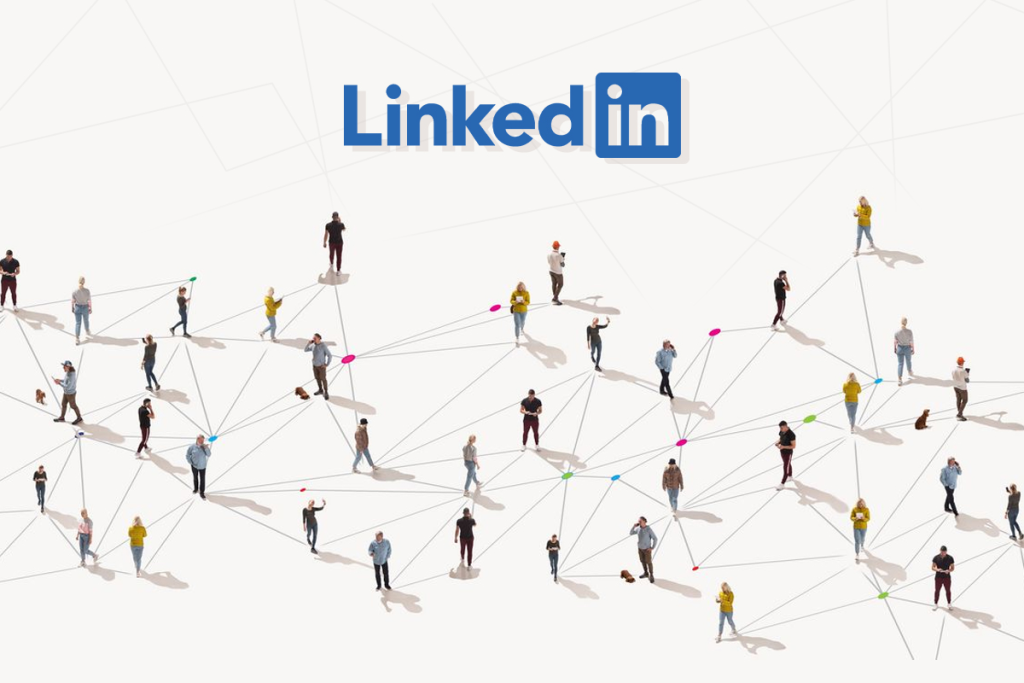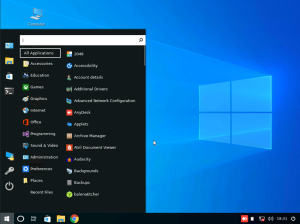LinkedIn networking is becoming increasingly vital in today’s professional landscape, as many workers prefer seeking advice from their personal networks over traditional research methods. Recent data from LinkedIn reveals that 43 percent of employees value peer recommendations more than AI tools or search engines when it comes to making informed decisions. This shift underscores the importance of professional networks, particularly as Millennials and Gen Z, who comprise a significant portion of B2B buyers, heavily rely on their connections. With over half of respondents feeling overwhelmed by the rapid changes brought on by AI in the workplace, the need for trusted peer advice has never been more crucial. Consequently, brands are adapting their strategies, focusing on community-driven content that speaks to the evolving B2B buyer behavior, highlighting the enduring value of personal relationships in professional growth.
In the realm of online career advancement, the practice of professional networking has increasingly shifted towards interaction on platforms like LinkedIn. This shift emphasizes the importance of collaborative connections and trusted peer insights as essential resources for individuals navigating their careers. As AI and modern technology reshape the workplace, professionals increasingly seek guidance from colleagues and established networks, moving away from solely relying on digital tools or corporate messaging. As community-driven conversations gain traction, they reflect a broader trend in B2B dynamics, where peer endorsements turn into credible influences over purchasing decisions. Recognizing this, many brands are navigating this new landscape by prioritizing authentic content that resonates with the evolving values of today’s professionals.
The Importance of Peer Recommendations in Professional Development
In today’s fast-paced corporate environment, professionals are increasingly leaning on peer recommendations as a vital resource for decision-making and problem-solving. Research indicates that 43% of workers prioritize consulting their personal networks over traditional search engines and AI tools when seeking clarity on workplace issues. This reliance on colleagues signifies an essential shift in professional development, where interpersonal connections and shared experiences are valued alongside technical expertise. By fostering strong relationships within professional networks, individuals can access a wealth of knowledge and insights that are often more relevant than algorithm-driven suggestions.
Moreover, the influence of these peer networks cannot be overstated. Many professionals report feeling more confident in their choices when they have the backing of their colleagues, highlighting the role of community-driven interactions in shaping career trajectories. When peers validate decisions or provide useful advice, it not only enhances the individual’s confidence but also strengthens the overall team dynamic. This trend underscores the importance of cultivating a supportive workplace environment where peer recommendations are actively encouraged and cherished.
Navigating AI Tools and Job Security in the Workplace
As artificial intelligence becomes more integrated into the workplace, many professionals report feeling overwhelmed by the rapid pace of technological advancements. In fact, a survey showed that over half of the respondents find learning about AI adds to their work stress. This discomfort suggests a significant gap between technology and emotional well-being, especially as younger generations express anxiety about keeping pace with their peers. For companies, understanding this dynamic is crucial as it affects not only employee morale but also the overall effectiveness of AI tools that are being implemented.
Furthermore, this growing discomfort with AI tools reveals an important aspect of job security and the relevance of human skills in decision-making processes. As people increasingly prioritize comfort and clarity over technical competencies, the potential for AI to enhance, rather than replace, human contributions becomes paramount. Organizations have the opportunity to create training programs that not only enhance skills but also help employees feel secure in their roles despite the encroaching influence of AI. By balancing human insight with technological toolsets, companies can foster an environment where employees feel empowered rather than threatened.
Shifting Dynamics in B2B Buyer Behavior
The landscape of B2B buyer behavior is rapidly evolving, as evidenced by LinkedIn’s findings that 77% of marketing leaders now rely on peer networks to evaluate companies. This fundamental shift sees younger generations, particularly Millennials and Gen Z, moving away from traditional corporate messaging toward authentic peer recommendations. With over 70% of B2B buyers falling into these demographics, businesses must adapt their marketing strategies to prioritize community-driven content that builds trust. This approach not only resonates more effectively with today’s consumers but also nurtures relationships that can lead to long-term loyalty.
Brands looking to capitalize on these trends should consider adopting a more transparent marketing strategy that aligns with their audience’s values. Engaging those trusted creators and employees to share their genuine experiences can significantly enhance a brand’s credibility. Coupled with targeted community-driven initiatives, businesses can create a compelling narrative that appeals to the evolving B2B buyer landscape. By investing in strategies that emphasize peer influence and authentic connections, brands can transform their marketing efforts and better meet the demands of contemporary buyers.
Maximizing LinkedIn Networking Opportunities
LinkedIn stands out as a powerful platform for professional networking, encouraging individuals to thrive through connections. With more than one billion members, the opportunities for networking are immense. Strengthening ties with colleagues via LinkedIn allows professionals to access advice, collaborate on projects, and gain insights that can inform their career decisions. Whether it involves participating in group discussions, commenting on posts, or sharing one’s own experiences, actively engaging can lead to fruitful relationships that extend beyond the platform.
Moreover, by leveraging LinkedIn’s extensive networking capabilities, professionals can tap into a broader pool of resources and peer recommendations that enhance their credibility. Engaging with relevant communities not only provides support but also establishes one as a thought leader in their industry. In this way, LinkedIn serves as the bridge connecting professionals with the guidance they seek, promoting a culture of sharing knowledge that benefits all participants. Embracing these networking opportunities can truly elevate one’s career trajectory.
The Role of Community-Driven Content in Marketing Strategies
In the current digital landscape, community-driven content has emerged as a transformative element in marketing strategies. As noted by LinkedIn, about 80% of surveyed marketers plan to increase their investment in this type of content, reflecting a recognition of its power to connect with audiences effectively. Community-driven content fosters authentic engagement, enabling brands to resonate with their target demographics on a deeper level. It reflects the genuine experiences and values of consumers, which is particularly appealing to younger buyers who prioritize trust.
Incorporating community-driven content into marketing efforts can significantly enhance brand loyalty and drive purchasing decisions. By leveraging peer recommendations and authentic narratives, brands cultivate a supportive environment where consumers feel valued and heard. This strategy not only positions brands favorably among their audiences but also encourages ongoing interaction, fostering a sense of belonging. As marketing continues to evolve, the rise of community-driven content represents a shift toward more meaningful connections that can sustain brands in a competitive marketplace.
Overcoming the Challenges of Information Overload
As professionals navigate an increasingly complex landscape of information, the challenge of filtering through overwhelming amounts of data has become ever more pressing. LinkedIn’s findings illustrate that many individuals now feel inundated by the rapid pace of change, particularly in relation to AI technologies. This information overload can lead to decision fatigue, making it essential for workers to adopt strategic methods for sorting through the noise and focusing on what truly matters in their professional development.
To overcome this challenge, individuals can leverage their personal networks to obtain concise insights and clarity on their concerns. By prioritizing peer interactions, professionals can circumvent the confusion that often accompanies excessive information, opting instead for tailored advice from trusted sources. Encouraging dialogue among colleagues can help mitigate stress and promote a culture of shared learning, enabling workers to feel less isolated in their experiences and more empowered to make informed decisions.
The Mental Health Impact of AI Adaptation
As AI technologies continue to influence workplace dynamics, professionals must confront the mental health implications of adapting to such changes. The LinkedIn survey reveals that a considerable number of workers feel the strain of trying to keep up with advancements, often perceiving AI-related learning as an additional burden. This phenomenon suggests that organizations need to consider the emotional well-being of their employees when implementing AI tools, as stress and anxiety can hinder productivity and workplace morale.
Creating an environment that prioritizes mental health involves acknowledging the difficulties that come with learning complex technologies. Employers should focus on providing adequate training and resources that support their employees through the adaptation process. By fostering open conversations about AI and its impact on workloads, organizations can empower staff to share their challenges and seek assistance, ultimately alleviating feelings of disconnection and anxiety surrounding technological adaptation.
The Future of Work: Finding Balance between AI and Human Insights
As we move into an era increasingly influenced by artificial intelligence, finding the right balance between human insight and AI capabilities is crucial. The notion that AI will fully replace human roles is being challenged by professionals who prefer to rely on personal networks for decision-making. This reflects a growing recognition of the unique qualities and perspectives that human connections offer, which cannot be replicated by machines. Organizations should embrace this hybrid approach, harnessing both AI tools and the emotional intelligence of their workforce.
Moreover, encouraging employees to maintain strong networks can seamlessly integrate with the use of AI. By combining the analytical power of technology with the intuitive judgement of human experience, companies can foster innovation and adaptability. This future-forward perspective is essential for navigating the complexities of work in the digital age, ensuring that employees feel supported and informed while also embracing the advantages that AI can bring to the table.
Frequently Asked Questions
What role does LinkedIn networking play in professional development?
LinkedIn networking is crucial for professional development as it facilitates connections with industry peers, mentors, and potential partners. By engaging with your network, you can gain insights, share experiences, and receive peer recommendations that enhance your career growth.
How can I leverage LinkedIn networking for peer recommendations?
To leverage LinkedIn networking for peer recommendations, actively connect with your colleagues and industry leaders. Participate in discussions, share valuable content, and request endorsements from peers to build a strong professional presence that boosts your credibility.
What is the impact of AI in the workplace on LinkedIn networking strategies?
The growing presence of AI in the workplace influences LinkedIn networking strategies by making personal networks more valuable. Professionals are increasingly seeking advice from their connections rather than relying solely on AI tools, which creates opportunities for more authentic interactions and community-driven content.
How does LinkedIn networking affect B2B buyer behavior?
LinkedIn networking significantly impacts B2B buyer behavior as 77% of marketing leaders report that buyers prefer recommendations from their networks over traditional brand messaging. This shift emphasizes the importance of building trust through peer interactions on the platform.
What are the benefits of community-driven content in LinkedIn networking?
Community-driven content in LinkedIn networking helps foster trust and engagement among users. Professionals increasingly rely on content created by trusted creators and their peers, enhancing their decisions and relationships within their professional networks.
How can Millennials and Gen Z use LinkedIn networking effectively?
Millennials and Gen Z can use LinkedIn networking effectively by actively participating in discussions, engaging with community-driven content, and seeking peer recommendations. Building strong relationships with their networks can help them navigate their careers and establish credibility with potential employers.
What strategies can I implement to reduce feeling overwhelmed in my LinkedIn networking experience?
To reduce feelings of overwhelm in LinkedIn networking, set specific goals, limit the number of connections you pursue at once, and focus on quality interactions rather than quantity. Curate your feed to emphasize relevant and valuable content that aligns with your professional interests.
How can LinkedIn networking help with stress management in the workplace?
LinkedIn networking can help with stress management by providing a supportive community where professionals can share experiences, seek advice, and find mentors. This network can offer emotional support and practical solutions to navigate workplace challenges.
| Key Points | Summary Data |
|---|---|
| 43% of workers prioritize personal networks over search engines for clarity. | Survey shows professionals rely on colleagues for advice. |
| 60% of workers feel overwhelmed by AI’s rapid evolution. | More than half feel learning about AI is like an additional job. |
| 41% believe AI progress affects their well-being. | Gen Z respondents often exaggerate their AI skills. |
| 77% of B2B marketing leaders say buyers trust their networks over formal channels. | 80% marketers plan to invest in community-driven content. |
Summary
LinkedIn networking is increasingly becoming the preferred choice for professionals seeking advice and clarity in their work environment. The latest research suggests that individuals are leaning toward personal connections over traditional resources like search engines and AI tools, reflecting a significant shift in the workplace mindset. As the reliability of peer recommendations gains prominence, particularly among younger generations, brands must adapt their strategies to align with these trends. This shift not only highlights the importance of personal networks but also suggests that professionals are prioritizing trust over technology, showcasing a desire for authentic connections in a rapidly changing landscape. By understanding these dynamics, businesses can better position themselves to engage their audiences effectively.




